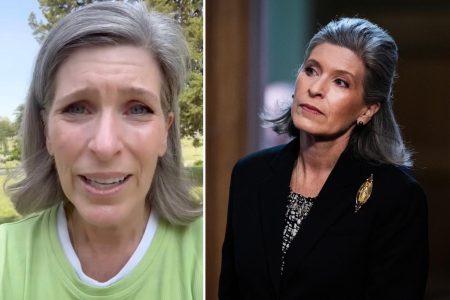Bronx Congressman Ritchie Torres has escalated tensions with Governor Kathy Hochul by demanding a thorough investigation into allegations concerning the Hochul administration’s handling of New York’s $9 billion Consumer Directed Personal Assistance Program (CDPAP). Citing potential impropriety, Torres’ letter urges both state and federal authorities to scrutinize actions that appear aimed at steering the lucrative contract towards a single, out-of-state entity, Public Partnerships LLC, known for its dubious reputation. Torres contends that the process surrounding the awarding of the contract raises red flags, especially given its exemption from review by the state Comptroller, which suggests possible concealment of wrongdoing by Hochul’s office. His inquiry represents a significant challenge to the governor amidst concerns of fraud and oversight deficiencies plaguing the Medicaid program.
Ritchie Torres’s allegations are detailed in a letter addressed to Inspector General Lucy Lang and the U.S. Department of Health and Human Services Inspector General Christi Grimm. He points out claims made by Carlos Martinez, the CEO of BRIDGES, which state that a disability official indicated the state’s preferred contractor was chosen before the bidding process had formally begun. This assertion of pre-selection, Torres asserts, casts a shadow over the integrity of the entire bidding procedure, which he describes as a mere façade to legitimize a predetermined winner. Torres’s comments underscore a broader call for accountability in the administration’s handling of a program that serves a vital segment of New York’s Medicaid recipients, allowing them to hire family or friends as caregivers.
The interest in overhauling the CDPAP stems from its ballooning costs and apparent lack of oversight concerning the approximately 700 intermediary agencies involved in the program. The Health Department’s decision to consolidate these operations under Public Partnerships LLC has sparked industry discontent, with players in the home care sector arguing that such moves threaten the viability of much-needed services. Carlos Martinez’s assertions have amplified these concerns, painting a picture of corruption and favoritism that Torres believes merits urgent attention from independent investigation agencies to restore credibility within the system.
In response to Torres’s allegations, Hochul’s administration has been quick to defend the integrity of the bidding process surrounding the CDPAP contract. A spokesperson for the governor accused Torres of attempting to obstruct necessary reforms aimed at curbing rampant overspending and fraud within the existing system. Hochul herself remarked that the procurement process was independent and fairly conducted, emphasizing the state’s need to initiate meaningful changes to ensure the sustainability of the home care program for all New Yorkers, including vulnerable populations like the elderly or those with disabilities. Hochul’s insistence on transparency, coupled with the claim that a range of bidders participated in the selection process, seeks to quell the allegations of impropriety directed at her administration.
Moreover, Hochul’s narrative portrays her as a proactive leader looking to correct the failures of a previously ineffective system. She reiterates her commitment to the principles of the CDPAP, emphasizing her administration’s aim to maintain family unity by allowing people to remain at home with proper care. Her government’s defense hinges on the argument that a restructuring of the program is crucial for safeguarding taxpayer interests and enhancing the quality of care provided to those reliant on it. The governor has further allowed for post-contract assessments by the state Comptroller to check for compliance and accountability, suggesting a shift towards enhanced governance of the Medicaid service system.
As this conflict unfolds, it is evident that Torres’s concerns resonate with various stakeholders within the healthcare community who have been presenting grievances about the CDPAP. His call for investigation highlights widespread anxiety over care quality, oversight mechanisms, and potential corruption, which are critical in shaping the future of home care in New York. The ongoing dialogue among governmental agencies, politicians, and advocacy groups will be vital in determining the trajectory of the CDPAP, especially amidst the backdrop of an impending transition to Public Partnerships LLC’s management by April 2025. Stakeholders are keenly observing the developments, hoping that thorough examinations yield solutions that prioritize the needs of New York’s most vulnerable populations.
In conclusion, the exchange between Ritchie Torres and Kathy Hochul frames a crucial battle over the direction of a significant healthcare program in New York. As Torres pushes for accountability and reform, Hochul is positioned in defense of her administration’s efforts to address the inherent flaws within the CDPAP. This confrontation not only raises questions about the integrity of governmental procedures but also serves as a broader commentary on the complexities of administering Medicaid services effectively. With Torres mulling a potential gubernatorial challenge against Hochul in 2026, this political strife is likely to intensify, placing pressure on the administration to demonstrate transparency and effectiveness in its Medicaid management amidst growing scrutiny from all sides.










